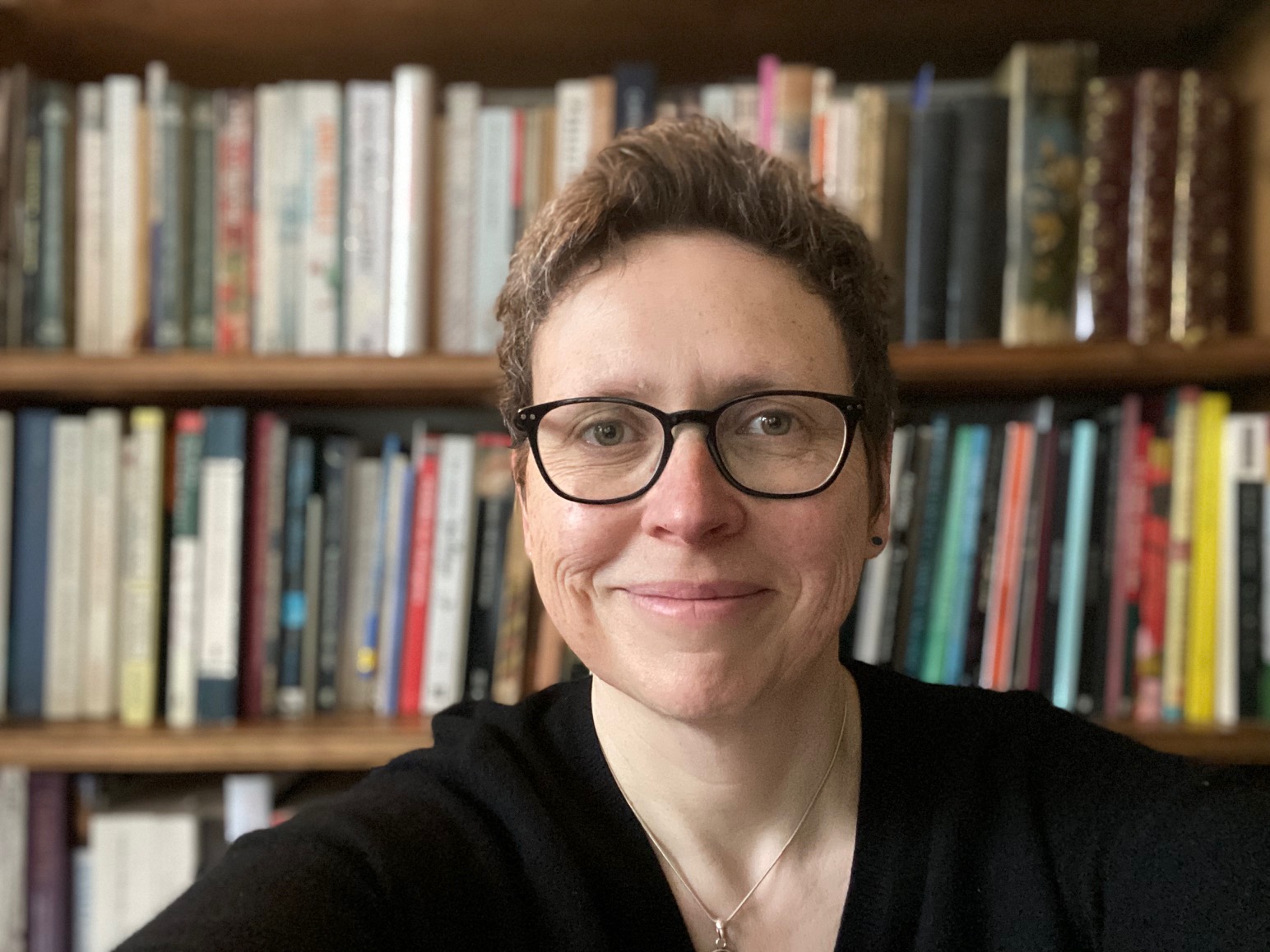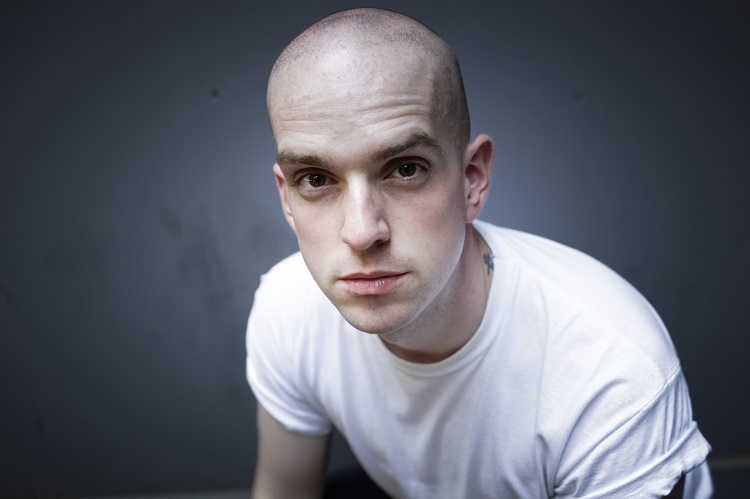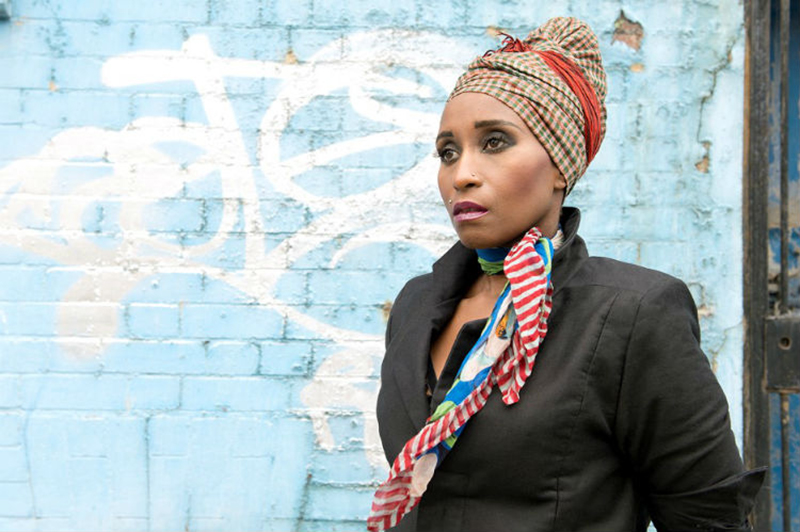Poetry for the people
At a party hosted by a literary friend in 1889, the poet Robert Browning nervously stepped forward to recite his poem 'How They Brought the Good News from Ghent to Aix' and test out his host’s new Edison Talking Machine phonograph, the earliest known audio recording of a poem.
130 years later, Manchester schoolchildren confidently unveiled 'Made in Manchester', an epic ‘living poem’ they have written in 64 of the city’s community languages.
Little immediately unites these two poetic works, yet, in their own way both define the ethos of the new Manchester Poetry Library, finally opening its physical doors at Manchester Metropolitan University later in 2021, when COVID-19 restrictions allow.
Celebrating language and poetry in all its variations and highlighting poetry in recording – its collections begin in 1889 when Browning first introduced verse into the technological age, and will be the new home to the Made in Manchester installation – a place of, by, and for the city, where the next generation of writers and readers will be forged.
Due to open last year before the COVID-19 pandemic struck, the Poetry Library has instead launched virtually, engaging with the public to invite them to contribute ideas for the collection and the kind of space that they want this to be for the city.
They’ve already hosted 5,000 people in a rich and diverse programme of virtual events. The Library has also provided an outlet for people to express their thoughts and fears during the COVID-19 lockdown.
It is a partner in a range of projects including Left on Read. Led by Manchester Met researchers, and in partnership with mental health charity 42nd Street, young adults will have the opportunity to plan and deliver an initiative to provide new personal perspectives on the mental health and loneliness of those aged between 16 and 25 during these unique times.
In addition, The WRITE Where We Are NOW (WWWAN) archive by Manchester Poetry Library is a collection of public responses to the WWWAN project curated by Carol Ann Duffy and the Manchester Writing School, asking people to write about their experiences during the pandemic.
These poems are now safeguarded for future generations, recognising their value as historical records of this moment in time. After the disappointment of postponing the physical opening, Manchester Poetry Library staff have been busy at work. There are books ready to go on the shelves, new members of staff, a membership system up and running and a huge amount of interest from the community.
They have curated a digital programme of workshops and readings, are creating commissions for poets and translators, and exploring options such as click and collect book loans.
In early 2021, they joined partners from Manchester UNESCO City of Literature to celebrate International Mother Language Day with a series of literary events across the city, including a multilingual mushaira with local schools and the virtual launch of our new Chinese and Polish poetry collections.
The first of its kind in the North West, and the only public poetry library in the country to be based within a university, the Manchester Poetry Library is already blazing a trail.
But what really sets the new Poetry Library apart is what it will offer to the city – no towering bookcases full of dusty old tomes – but instead a living, breathing vibrant literary space at the heart of Manchester Metropolitan’s ever-growing creative campus.
Manchester Poetry Library will host one of the country’s most significant collections of contemporary poetry, alongside poetry in recording, on film, and in translation.
Manchester Poetry Library will be for everyone interested in, curious about, or simply inspired by poetry. We aim to create a place where language is celebrated in all its diversity, and where the next generation of writers and readers are made
Far from an elitist scholarly institution, the Library doors will be enthusiastically open to the public to visit, borrow from and mould the collections and events programme to reflect their interests.
It will deepen the legacy of schools projects such as Mother Tongue Other Tongue, the University’s multilingual poetry competition for pupils which was recently awarded a Queen’s Anniversary Prize.
Manchester Poetry Library will host exciting literary events of national renown, including poetry performances, workshops and events from established and emerging talent.
There will be opportunities to collaborate with the University’s Manchester School of Art, School of Theatre, organisations across the region, and it will welcome ideas from students across all subjects and the public about ways they want to engage.

Situated alongside the Manchester Writing School in the new Grosvenor Building, the Poetry Library will enjoy a symbiotic relationship with the swelling roster of celebrated poets to have passed through its halls, including Professor Carol Ann Duffy DBE, Poet Laureate from 2009-2019, hosting their catalogue of collections and offering a unique place to research, teach, write and perform.
Becky Swain, the Director of Manchester Poetry Library, said: “We are excited to be opening the North West’s first public poetry library – open to all. Manchester Poetry Library will be for everyone interested in, curious about, or simply inspired by poetry. We aim to create a place where language is celebrated in all its diversity, and where the next generation of writers and readers are made.”
In the meantime, who better to whet the public’s appetite ahead of the Poetry Library’s launch than Manchester’s very own poets themselves? Met Magazine caught up with two of the Writing School’s finest to find out why Manchester needs a Poetry Library, what it means to them, and what we can all expect when it opens its doors.
Andrew McMillan - "This part of the world has needed this for a long time"
“The Poetry Library is just the best thing we could have done. This part of the world has needed this for a long time.”
Andrew McMillan is Yorkshire-born, and has spent his professional life as a poet and lecturer in the North West, the last three years at Manchester Writing School.
After propelling into the country’s cultural consciousness with the release of his award-winning 2015 debut collection physical – one profile has described him as a “rock star” of poetry – McMillan was in the running in 2019 to be the next Oxford Professor of Poetry, a position of national renown previously held by W.H Auden and Seamus Heaney.
McMillan has enthusiastically used his public profile to push two of his passions, bringing poetry to the people and being a voice for the North, urging the redressing of vast geographic imbalances in investment in the arts.
Not that the latter hasn’t occasionally been a curse as well as a blessing. “When my first book came out a review said ‘Andrew writes about the wastelands of a northern town’ as if it was Chernobyl, instead of Barnsley,” he laughed.

“If you look at art spend across the nation, there’s a massive divide between London and outside of London. But it’s not just about bringing things from London outside, but about investing in new things within these places,” he said.
Manchester Poetry Library, he explained, is an example of how such investment can also benefit existing cultural spaces in the city. “So the Manchester Poetry Library [becomes] a spoke in a bigger wheel that’s connected through poetry,” he said.
And while a poetry library is exactly the kind of cultural infrastructure that needs to be developed in the North, he believes, it is a demonstration of Manchester’s blossoming status as a literary city and Manchester Metropolitan’s connections within it that makes it such a perfect destination.
“The Library has this notion of [featuring work] of Manchester’s 200 community languages. So there’s not a sense this is a ‘Manc library’ that has a certain identity of just one city or people. The great thing that Manchester has is this diversity and plethora of different languages and different communities.
“Before the pandemic, there was stuff happening every night in Manchester. You could go out Monday to Sunday night to hear poetry, flash fiction readings, there will be things happening. We’ve always had this incredible tradition of independent publishers, from Comma to Carcanet. But now that Hachette, Macmillan and Penguin want to start moving up, there’s something really interesting in that.”
The great thing that Manchester has is this diversity and plethora of different languages and different communities.
McMillan was instrumental in the University hosting a preview of the Forward Prize in 2019, the first time outside London. He hopes for more when the Poetry Library opens, encouraging the people of Manchester inside.
“It’s not a closed research space, it’s going to be built by communities. Becky [Swain, Director of the Poetry Library], has this wonderful phrase of it ‘not opening full’, which is this really nice concept that we will have empty shelves because we want people to come in and curate it for themselves.”
Alongside his teaching, McMillan is planning for the launch of pandemonium, the follow-up to his 2018 collection playtime, the Sunday Times’ Poetry Book of the Year that won the inaugural Polari Prize for work that explores the LGBT experience.
When he made the final shortlist for Oxford Professor of Poetry, McMillan outlined his philosophy for the post. But, in a way, it also sums up what Manchester Poetry Library seeks to achieve. He sought to “remind people that poetry does not belong within the academy, it belongs to the people".
Malika Booker - “It feels like a blank chalkboard and you
don’t know what will be written on it”
Malika Booker is a poet, playwright and multidisciplinary artist, whose work has toured nationally and been featured on BBC radio. She was Poet in Residence for Hampton Court Palace. And has toured internationally with the British Council as performer, workshop facilitator, visiting writer and creative writing mentor.
Yet her true love is poetry, and in 2020 she won the prestigious Forward Prize for Best Single Poem. Previously, she has been shortlisted for the Seamus Heaney Prize, recommended by the Poetry Book Society, and was even the first poet-in-residence at the Royal Shakespeare Company.
Joining Manchester Writing School at the beginning of 2019 was just the opening act in a year-long procession of accolades that followed, including winning the Society of Authors’ Cholmondely Awards for outstanding contribution to poetry, and celebrating news that an anthology will be published of her collective Malika’s Poetry Kitchen.
To top it off, she chaired the judging panel for the 2019 and 2020 Manchester Poetry Prize, a role previously held by Professor Carol Ann Duffy, someone she has always been inspired by.
“I was tiptoeing into big shoes,” she admitted. This year promises a new poetry collection and play in development, before the opening of the Poetry Library, which continues a lifelong love affair.

“I’m a library nerd!” she laughed. “When I came from the Caribbean to my secondary school, I asked the librarian if she needed a helper to pack the books away at lunchtime.
“So the fact that this University is going to have a poetry library has knocked me for six because I have a feeling I will be living in there.
“It’s also the fact that it’s a dynamic contemporary poetry library,” she continued, speaking as someone whose work has always spanned many forms.
“It’s thinking about poetry as performance with spaces for audience engagement and interaction with poetry.
“We have a hub that can support what poetry is in contemporary Britain, which ranges from the inanimate object – the book – right down to live performance, to poets doing theatre and solo shows.”
The Library builds on the University’s community focused cultural initiatives, such as Mother Tongue Other Tongue, and links with those who work in multiple other languages.
“You start to think about what would a Polish collection look like here? What would a Bengali collection look like here? It’s exciting that it’s trying to represent diversity and multiculturalism in a holistic way.
Booker has already been working with student poets to look into the growing library archive. She is keen to mentor young writers and use the Library as a platform to share their work and foster partnerships with local cultural organisations.
We have someone who is a national treasure. Manchester Poetry Library has the potential to be that national treasure as well, a springboard from the work that Carol Ann Duffy has done within the city and be a legacy of that.”
“I can’t wait. It feels like a blank chalkboard and you don’t know what will be written on it.”
And where better to host it than at Manchester Metropolitan, home to the poet laureate for the last decade.
“We have someone who is a national treasure. Manchester Poetry Library has the potential to be that national treasure as well, a springboard from the work that Carol Ann Duffy has done within the city and be a legacy of that.”
